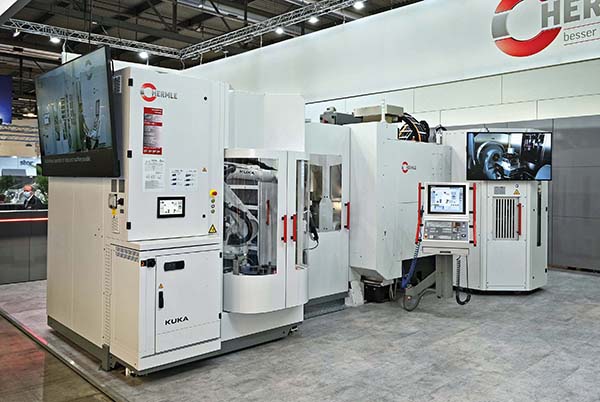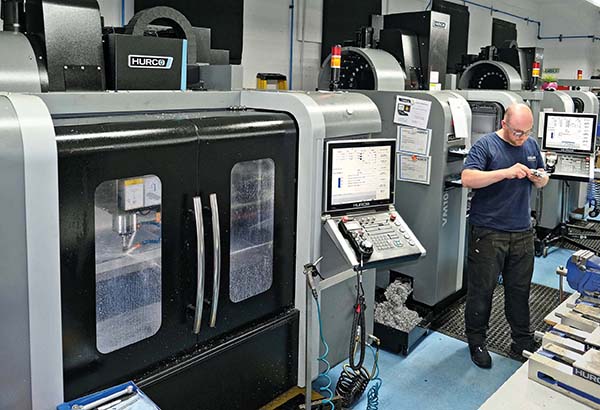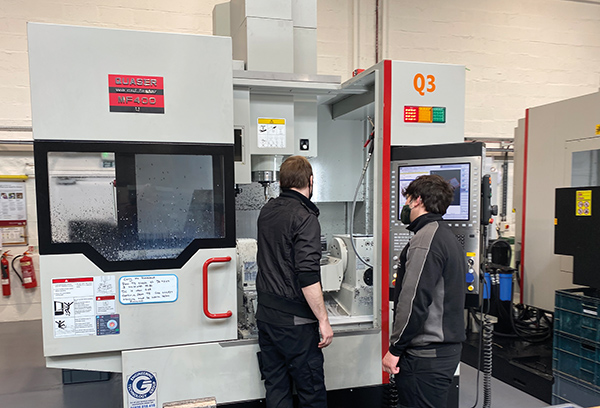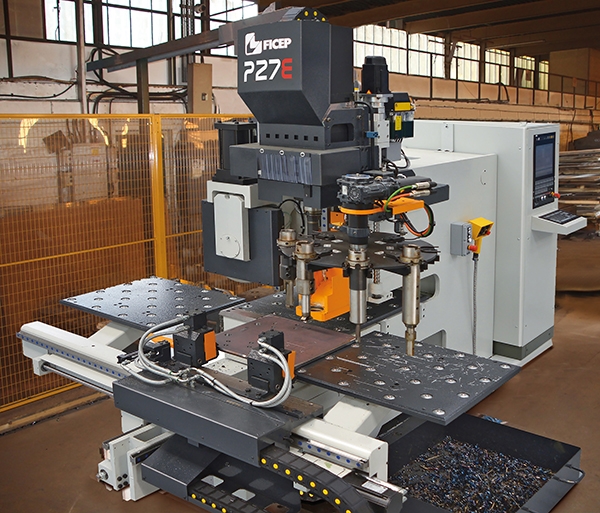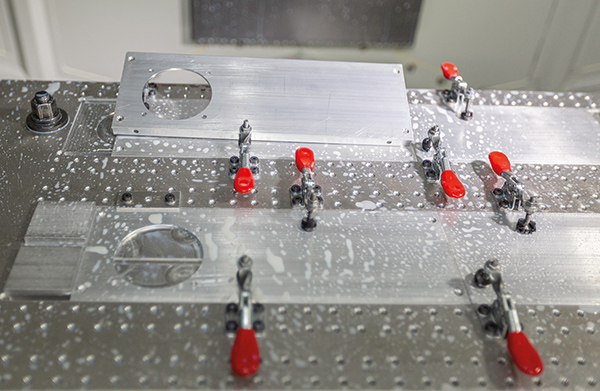
At the EMO 2021 machine tool exhibition in Milan last month, prismatic machining equipment manufacturer Hermle demonstrated its latest automation system, the RS1. The system feeds workpieces and machine pallets automatically into and out of either one or a pair of the company’s three- and five-axis machining centres. According to Hermle, the resulting production cells are now sufficiently simple for use by semi-skilled staff. The sole sales and service agent for the UK, Irish and Gulf markets is Kingsbury.
Occupying a compact area of just 12 sq m, the new RS1 robotic unit is capable of minimally attended operation, 24/7. In addition to performing its loading and unloading duties, the six-axis robot automatically exchanges handling devices for pallets and fixtures, as well as grippers for raw billets and finished components. Pallets accommodating large, heavy workpieces weighing up to 60 kg may be transported, or individual workpieces up to 15 kg.
A modifiable rack storage concept accommodates pallets, workpieces, fixtures and the interchangeable end effectors for the robot. Furthermore, it is possible to extend the standard two-rack modules with a third, while users may also incorporate automated guided vehicles and other expansion solutions such as measuring and cleaning modules.
For cells comprising two Hermle machines, a third-party control system with graphical user interface from SOFLEX is employed to plan and organise order processing, control workpiece flow, oversee resource provision and transmit the necessary production information to the machine tools. For single-machine cells, a Hermle Automation Control System (HACS) with integrated touch panel provides intelligent order processing, as well as intuitive operation and control.
For further information
www.kingsburyuk.com






